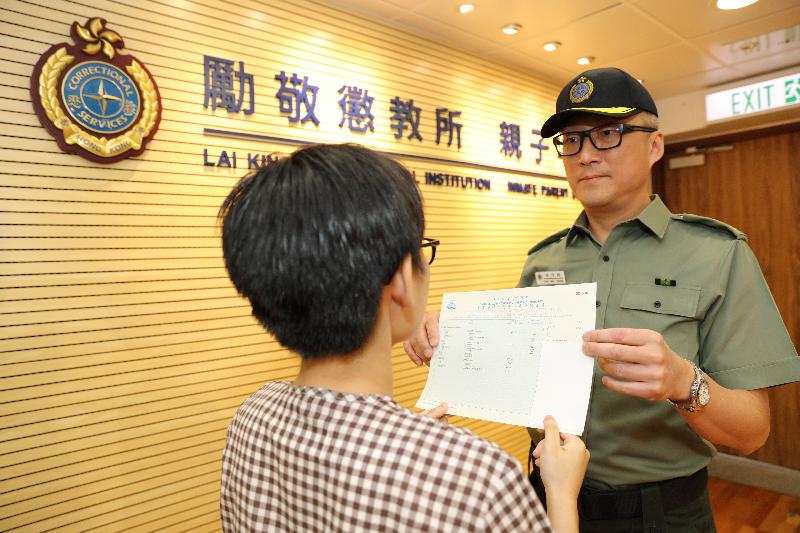Following is a question by the Hon Shiu Ka-fai and a written reply by the Acting Secretary for Financial Services and the Treasury, Mr Joseph Chan, in the Legislative Council today (July 11):
Question:
At present, operators of money changers must possess a licence granted by the Commissioner of Customs and Excise for operating money changing service, a kind of money service. Some operators of money changers have relayed to me that in recent years, some banks have not only rejected their applications for opening new accounts but also suddenly frozen or cancelled the existing accounts of money changers and the personal accounts of their operators, dealing a serious blow to their business operations. In this connection, will the Government inform this Council:
(1) of the number of licensed money changers in each of the past five years;
(2) of the number of complaints or requests for assistance about the opening/maintenance of bank accounts received by the authorities from operators of money changers in the past five years; whether the authorities have taken follow-up actions, including gaining an understanding from the banks of the reasons for that; if so, of the details; if not, the reasons for that;
(3) whether the authorities intend to eradicate the money changing service operated by money changers; if so, why they have not made any announcement on this; if not, why the authorities have all along allowed banks to refuse the opening/maintenance of bank accounts by money changers;
(4) whether it knows (i) the respective numbers of accounts of money changers and personal accounts of their operators which were cancelled by banks in each of the past five years, and (ii) the number of existing bank accounts belonging to money changers; if it does not know, whether it will request banks to provide the relevant information;
(5) whether the Hong Kong Monetary Authority has issued guidelines regarding the circumstances under which banks may refuse to open new accounts for money changers and cancel/freeze their existing accounts; if so, of the details; if not, the reasons for that; whether the authorities will request banks to give an explanation for such decisions to the affected operators of money changers; if so, of the details; if not, how the authorities safeguard the proper interests of operators of money changers; and
(6) given that the Customs and Excise Department (C&ED) will examine the records of new applicants for a licence of money service operator or those of applicants for renewal of the licence every two years, and will issue/renew the licence only after it has ascertained that such applicants have met all the requirements, and that C&ED will conduct compliance inspections on existing money changers, whether the authorities will consider assisting those operators with good records in opening bank accounts; if so, of the details; if not, the reasons for that?
Reply:
President,
Our consolidated reply to the above questions is set out as follows:
Under the Anti-Money Laundering and Counter-Terrorist Financing Ordinance, any person who wishes to operate a remittance and/or money changing service in Hong Kong is required to apply for a money service operator (MSO) licence from the Customs and Excise Department (C&ED). The C&ED is responsible for the supervision of licensed MSOs' compliance with the customer due diligence (CDD) and record-keeping obligations and other licensing requirements, as well as combating unlicensed operation of money service.
In the past five years, the number of licensed MSOs continues to increase, as follows:
| |
2014 |
2015 |
2016 |
2017 |
First 6 months
of 2018 |
| Licensed MSOs |
1 206 |
1 226 |
1 231 |
1 309 |
1 402 |
In recent years, as the international community intensifies its efforts in combating money laundering and terrorist financing (ML/TF), financial institutions around the world (including banks in Hong Kong) have generally strengthened the related controls, including undertaking more in-depth CDD and on-going monitoring on customers and adopting control measures commensurate with customers' background and risk levels. Where suspicious transactions are identified, financial institutions are required by law to report to law enforcement agencies.
In accordance with international standards and local laws, the Hong Kong Monetary Authority (HKMA) monitors the anti-money laundering and counter-terrorist financing (AML/CTF) controls of the banking industry. The HKMA has been reminding the banking industry that, in implementing robust AML/CTF controls, they should take care not to unreasonably impede access to banking services by legitimate businesses and ordinary citizens. The HKMA has also issued guidance to banks in the past two years, stressing that banks should apply a risk-based approach to the CDD process, instead of adopting a one-size-fits-all approach. Meanwhile, banks should maintain proper communication with customers throughout the CDD process, which should be transparent, reasonable and efficient, as required by the "Treat Customers Fairly" principle. In response to the guidance, banks have taken various steps to enhance transparency and improve customer experience; for example, all retail banks have established mechanisms to review unsuccessful applications. The HKMA also set up a dedicated webpage on its website and launched a dedicated email account (accountopening@hkma.gov.hk) to facilitate customers' submission of enquiries and feedback.
In practice, individual banks will determine whether to establish business relationships with individual customers based on their own business strategies and risk assessments and after taking into account various relevant factors. After accounts are opened, banks and customers should follow the relevant terms and conditions to operate the accounts. Generally speaking, where banks, during their on-going monitoring process, suspect that certain accounts may be involved in irregular or suspicious transactions (for example, a personal account is being used for business purpose, or if a customer is not able to provide background information as required by a bank), they should undertake appropriate risk mitigating measures, such as by filing a suspicious transaction report in accordance with the law, or terminating the accounts and business relationships as appropriate. The HKMA requires banks to explain to customers the reasons for rejecting account opening applications or closure of accounts where permitted by law. Should a customer consider that a bank has not handled his/her case properly, he/she can make a complaint to the bank concerned or the HKMA and request review for his/her case.
Since the launch of the dedicated email account last year, the HKMA has received, amongst other enquiry/assistance seeking cases, six cases concerning MSOs. As for complaint cases, the statistics is set out below:
| Types of Complaint |
2014 |
2015 |
2016 |
2017 |
First 6 months
of 2018 |
| Refusal of account opening application by banks |
11 |
37 |
0 |
3 |
0 |
| Closure of accounts by banks |
1 |
6 |
0 |
0 |
0 |
The HKMA will follow up on each and every complaint. Where appropriate, it will remind the bank concerned to understand more about the business nature of MSOs and give due consideration to the fact that MSOs are regulated by the relevant government department. The HKMA also requires banks to properly distinguish the risk levels of individual MSOs, and adopt appropriate and effective CDD and on-going monitoring measures accordingly. The HKMA considers that it will be more effective to monitor the situation through complaints lodged by customers and handling of the cases directly, and therefore does not collect statistics about bank accounts relating to MSOs.
The C&ED has been maintaining communication with the HKMA to facilitate deeper understanding of the MSO sector by the HKMA and the banking sector. For instance, C&ED participates in seminars organised by the HKMA to brief banks on the mode of operation of MSOs and the regulatory regime for the industry. The C&ED will continue to work with the HKMA to strengthen banks' confidence in licensed MSOs.
The HKMA will also continue to maintain communication and work together with the banking industry, business community and relevant stakeholders (including MSOs) to tackle this global and complex issue. The aim of the HKMA is to maintain a robust AML/CTF regime in Hong Kong, without compromising access by legitimate businesses and ordinary citizens to basic banking services.

